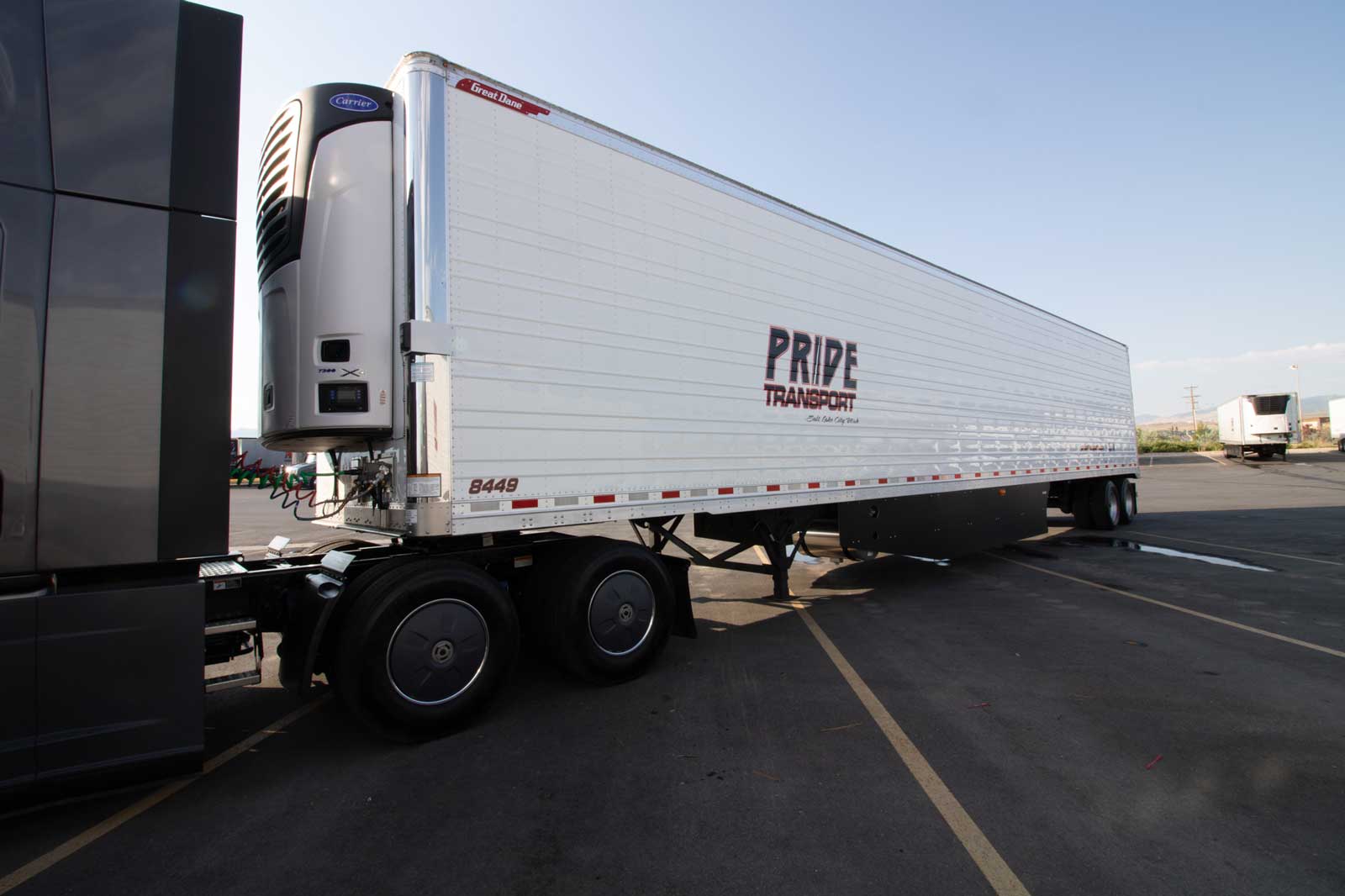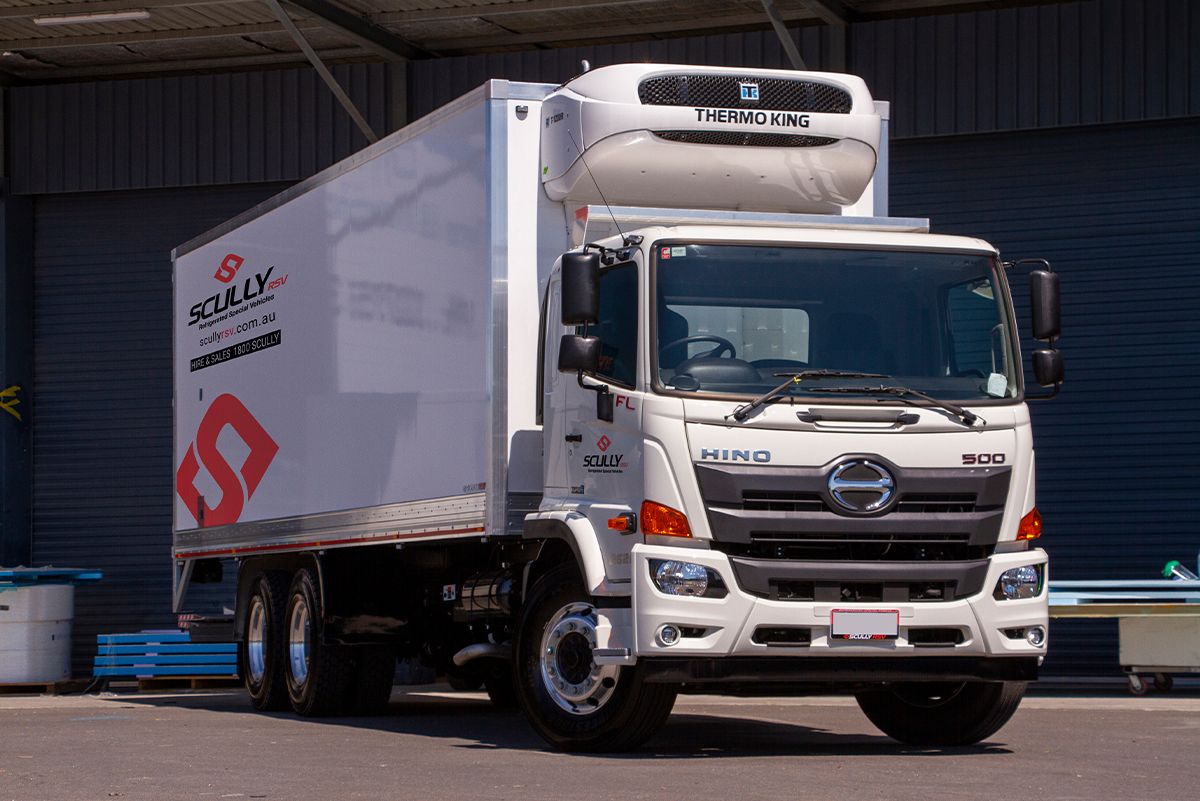Picking the Right Transport Refrigeration System for Your Fleet
Selecting an appropriate transport refrigeration system for your fleet is a vital choice that can dramatically influence operational performance and item stability. It demands a detailed understanding of your details refrigeration demands, including temperature needs and delivery routines.
Comprehending Your Refrigeration Needs
When choosing a transportation refrigeration system, comprehending your details refrigeration demands is paramount to making certain product high quality and conformity with industry criteria. Various factors should be thought about to identify the most appropriate system for your operation. These include the sort of items being carried, their temperature level demands, and the duration of transit.
For disposable items, such as fresh produce or drugs, accurate temperature level control is essential. Understanding the temperature array needed for each and every product permits the selection of a system that can keep those conditions regularly. Furthermore, take into consideration the frequency of deliveries and the distance traveled; longer trips may require systems with boosted insulation or back-up power alternatives to avoid temperature variations.

Furthermore, the capacity of the refrigeration system should align with your load size. Overwhelming a device can cause inadequate cooling, while a large system may be expensive and inefficient. Governing compliance is important; acquaint yourself with worldwide and regional standards governing the transportation of temperature-sensitive goods. By completely assessing these variables, you can guarantee that your selected transportation refrigeration system properly fulfills your operational demands and preserves product stability.
Kinds Of Transport Refrigeration Systems
Selecting the best kind of transportation refrigeration system is important for guaranteeing the secure transit of temperature-sensitive goods. There are a number of systems offered, each created to meet certain requirements and applications.
These systems are commonly preferred for their efficiency and lower initial expenses. One more option is the central refrigeration system, which offers several compartments or lorries from a single compressor device.
Additionally, there are self-contained refrigeration units that combine the compressor and evaporator in one bundle. These units are excellent for smaller vehicles or when area is limited. For specialized applications, such as transferring perishables or drugs, cryogenic refrigeration systems might be made use of, utilizing fluid nitrogen or carbon dioxide to maintain ultra-low temperature levels.
Lastly, hybrid refrigeration systems that incorporate electrical and diesel power are becoming significantly popular, using flexibility in energy use and lowering ecological impact. Understanding these numerous kinds permits fleet operators to make enlightened choices tailored to their specific operational demands.
Secret Attributes to Consider
How can one ensure that a transportation refrigeration system meets all operational needs? To attain this, numerous crucial features have to be thoroughly examined. First of all, temperature level control is essential; systems need to provide accurate temperature level setups to suit different products, varying from iced up products to perishable things.
Power performance is an additional vital consideration, as it impacts functional expenses. Try to find systems that utilize innovative modern technology, such as variable rate compressors, to maximize energy usage without compromising performance.
An additional feature to evaluate is the reliability and longevity of the devices. Equipments constructed from high-grade products and created for durability against harsh problems will decrease maintenance expenses and downtime.
Additionally, the convenience of maintenance and accessibility of parts can dramatically affect operational efficiency (thermo king truck refrigeration units). Attributes like modular layouts or remote tracking abilities can enhance service procedures
Finally, compatibility with existing fleet administration software can boost tracking and reporting procedures. By concentrating on these essential attributes, fleet drivers can ensure that their transportation refrigeration systems not just satisfy current needs but likewise adjust to future needs.

Budgeting for Refrigeration Solutions
Reviewing crucial attributes of transportation refrigeration systems is just one component of making sure operational effectiveness; budgeting for refrigeration remedies is equally crucial. A well-structured spending plan not only encompasses the preliminary acquisition cost but also takes into consideration long-lasting functional expenses, consisting of power intake, upkeep, and potential fixing needs.
When developing a spending plan, fleet supervisors ought to first evaluate the total price of ownership (TCO) This includes not only the procurement prices yet also ongoing expenses connected to fuel efficiency and the sturdiness of the refrigeration units. Picking systems with higher power efficiency ratings might produce significant financial savings in time, reducing upfront prices.
Additionally, fleet drivers should make up possible scalability. As organizations grow, the refrigeration needs might alter, necessitating upgrades or extra systems. Preparation for these future costs can avoid monetary stress.
Funding choices can likewise play an essential duty in budgeting. Leasing, car loans, or outright acquisitions each have unique monetary ramifications, and understanding these can assist in making an informed decision. Eventually, a thorough spending plan that thinks about both prompt and future requirements visit this site right here guarantees that transport refrigeration systems add positively to the general operational efficiency of the fleet.
Maintenance and Support Choices
In the world of investigate this site transport refrigeration systems, effective upkeep and assistance options are essential for guaranteeing ideal efficiency and long life. Routine upkeep is important to protect against failures and maintain the stability of temperature-sensitive freight. It is recommended to develop a regular evaluation schedule with qualified specialists that can perform essential checks and fixings on refrigeration units.
Assistance options ought to consist of a durable solution contract, covering both regular maintenance and emergency situation repairs. This guarantees that your fleet has accessibility to trigger help, decreasing downtime and maintaining functional performance. Several suppliers provide detailed support plans that consist of training for your personnel, allowing them to carry out fundamental troubleshooting and maintenance tasks.
In addition, using remote surveillance technology can boost your maintenance strategy - refrigerated transportation thermo king. These systems provide real-time information on temperature level and efficiency, permitting aggressive actions prior to issues intensify. Investing in training and technology not just increases your fleet's dependability but likewise expands the life expectancy of your refrigeration systems
Ultimately, a critical technique to upkeep and support will protect your investment and make sure that your transport refrigeration systems operate at peak performance, providing consistent outcomes for your service.

Verdict
In final thought, picking the suitable transportation refrigeration system for a fleet demands an extensive examination of particular refrigeration requirements, system types, and crucial attributes. In addition, careful budgeting and planning for future scalability will add to the lasting success of the refrigeration method.
Picking a suitable transport refrigeration system for your fleet is a critical choice that can dramatically affect operational efficiency and click to investigate product stability.When selecting a transport refrigeration system, understanding your particular refrigeration needs is vital to making certain product top quality and conformity with market criteria. By thoroughly analyzing these aspects, you can make sure that your chosen transportation refrigeration system effectively fulfills your operational needs and maintains item stability.
Inevitably, a detailed spending plan that thinks about both future and immediate requirements ensures that transportation refrigeration systems add favorably to the total operational efficiency of the fleet.
In final thought, choosing the appropriate transportation refrigeration system for a fleet requires an extensive analysis of specific refrigeration needs, system kinds, and important functions.